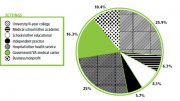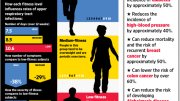
The Clinical Psychology Program at Duke University is a Ph.D. program for students seeking excellence in academic, scientific, and clinical training. This program is fully accredited by the American Psychological Association (APA) and by the Psychological Clinical Science Accreditation System (PCSAS). Our program has a strong history within the Boulder (scientist-practitioner) model and more recently has adopted a clinical science model of training in which the science of psychology and its clinical application are mutually interdependent and mutually evolving. That is, our program is designed to train clinical scientists who are capable of functioning successfully in academic, research, clinical, and community settings. Within this multifaceted training framework, we seek to develop students who are interested in careers in which the science of psychology is applied to address public health issues related to mental and physical diseases both nationally and internationally. The program is not appropriate for students interested solely in clinical practice and not in research. Rather, we strive for excellence in both the science and practice of clinical psychology.
At Duke, graduate training in clinical psychology emphasizes three domains of knowledge: adult clinical, child clinical, and health psychology. The expertise of the faculty, drawn from the Department of Psychology and Neuroscience and the Department of Psychiatry and Behavioral Sciences in the Duke University Medical Center, extends to a large number of interdisciplinary problems involving human behavioral and physical adaptation in its varying social contexts. Duke University’s Clinical Psychology Program is annually ranked among the top clinical psychology programs in the United States. Duke’s doctoral program in Clinical Psychology is a member of The Academy of Psychological Clinical Science, which is a coalition of doctoral training programs that share a common goal of producing and applying scientific knowledge to the understanding, assessment, and amelioration of human problems.
Specific interests include intervention and prevention methods across the life course for such phenomena as aggression and antisocial behavior, depression, personality disorders, eating disorders and obesity, substance abuse, HIVAIDS, cardiovascular disease, and chronic pain. Our faculty also study behavioral cardiology, behavioral medicine, global mental health, reducing disparities in minority mental and physical health services, assessment and intervention in pediatric psychology, and gene-environment interaction.
Clinical program faculty are also actively involved in University Institutes, including the Duke Institute for Brain Sciences (DIBS), Social Science Research Institute (SSRI), and Duke Global Health Institute (DGHI).
Source: psychandneuro.duke.edu
You might also like:



|
Stress Among Clinical Psychology Doctoral Students: A comparison of perceived stress levels during the five years of a clinical psychology doctoral ... at a private university in Chicago, Illinois. Book (AuthorHouse)
|




















You can try to go to
here are some search results
Good luck